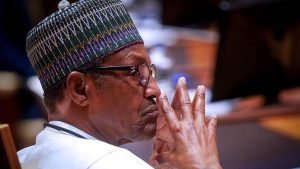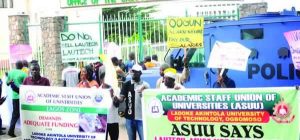
The Nigeria Police is meant to be deeply involved in the intricate security and well-being of communities. Its relations with security stakeholders and its posture to Human Rights and justice is expected to make every police station and every policeman a signifier of safety for law-abiding citizens, and a major threat to denizens of evil and criminality. The police are saddled by the law to protect lives and properties and to prevent crime and arrest situations.
The 2010 Police Act states that ‘The police shall be employed for the prevention and detection of crime, the apprehension of offenders, the preservation of law and order, the protection of life and property and the due enforcement of all laws and regulations with which they are directly charged, and shall perform such military duties within or outside Nigeria as may be required of them by, or under the authority of this or any other Act.’ The performatives of these roles show that the Nigeria Police fail to serve the citizens but continue to do the business of providing ample security to elite Nigerians.
In addition, many pundits say that, as long as the Nigeria Police remains on the exclusive list, and the Inspector General of Police, as well as all police officers are answerable to the centre alone, the Police Force will be used by the Federal Government to engage the temperaments, aspirations and desires of the Presidency. The Inspector General of Police would have no choice but to carry out the orders of the President directly or through the Interior Minister even if the orders would jeopardise the peace of the federation. This is a lingering shadow of the military years in Nigeria that is yet to be expunged or modified in the culture of the Police.
The Nigeria Police Force is not the friend of the Nigerian citizen because more often than not, Nigerians have experienced directly or vicariously the threat that the Nigeria Police poses to its fundamental liberties even when such limitations are neither backed by the same law nor the 2010 Police Act. While the Nigeria Police leverages on its constitutional role of being the force saddled with the protection of lives and property, preventing crime, physical and public harm, and protecting safety, the Human Rights Watch has stated that the Nigeria Police have constantly violated the rights of many Nigerians, leading to unlawful arrest, extortion, extrajudicial killings and torture. Many Nigerians have reported to the media several levels of police harassment, torture, unlawful detention and grave disappearances of their family members in the hands of the Nigeria Police.
These stories, which are published alongside the arrests of armed robbery gangs, rapists, amongst others, show that as much as the Nigerian Police is doing a tireless work of using its security intelligence to fight and win crime, the bad, untrained and problematic eggs in the force jeopardise these efforts by reclaiming its permanent bad image. A case in point is the complete detention, molestation and maltreatment of citizens without any ample evidence by the SARS. This led to the detention and death of Chibuike Edu in 2016, the handicap of Kester Edun in 2017 and recently the harassment and humiliation of an innocent lady in Ibadan in a publicised interrogation on social media.
Many citizens have accused SARS and other police officials of profiling its victims. This engagement of suspects without any evidence has led to many deaths, unlawful arrest – a man with a tattoo can be arrested for belonging to a secret cult without any evidence. Also, a young man carrying a laptop bag could be arrested and labelled a member of an advance free fraud gang, while a woman returning from work late at night might sleep in the police cell because her movement is suspicious and she may be a prostitute. All of these add up and lead to the distrust, fear and disregard for the Nigeria Police. Freda Onaiza wrote in The Journal, Volume 2, Distrust and Apathy in the Nigeria Police about the experiences of Nigerians who have been unlawfully detained and extorted and how Nigerian youths have responded with #ENDSARS which the federal government has responded to, promising to reform the Nigeria Police.
Apart from cases like the Apo Six, where justice was served after many years, many cases of police brutality and extra-judicial killings remain swept under the carpet of memory. These unpalatable experiences are related and stored in the memory bank of many Nigerians who try as much as possible not to engage the police, seek redress through the police, inquire on any issue with the police or give any security information to the police. Many Young Nigerians have been molested by the Nigerian Police for having laptops, and many have been harassed and asked to reveal personal information or escorted to the ATM machines to withdraw sums for unscrupulous patrol officers for fear of being accused of crimes that they did not commit.
Also, while the Police Act stipulates that bail is free and that the accused has the right to engage a lawyer – within the time frame of the law – a person is expected to be charged to court within 48 hours of arrest. Unfortunately, this applies in police custodies where forthright policemen are in charge of the divisions. In most cases, the police investigators are only out to extort the family members of the detained by serving out judgement and terror therefore usurping the powers of the Nigerian court, as in the case of the arrest of Mr. Sylvester Ihejirikha whose family members paid over 170,000 naira to investigation officer named ‘scorpion’ in Port Harcourt on a case of debt on a car. With many police divisions, you are guilty until proven innocent!
According to Filani Aderopo’s researched paper titled ‘The Right to Life in Nigeria: An Analysis,’ the Nigeria Police summarily executed 5,776 out of 24,941 armed robbery suspects between the year, 2000 to 2003. These killings also occur in ‘shoot-and-run’ circumstances at traffic checkpoints, during patrols and arrests, amongst others. The Nigeria Police was instrumental to the extra-judicial killing of Mohammed Yusuf, the founder of the Boko Haram. At this time, the Boko Haram was a simple sectarian group but with the element of martyrdom. It soon became an insurgent group that now constitutes a threat to the sovereignty of the Nigeria.
Many civil rights activists and pressure groups see the Nigerian Police as a dreaded instrument of the Federal Government used to put everyone in order. There have been many cases of lawful protests that have encountered the brutality of the Nigerian Police. Although many public protesters would have informed the force of its intentions to rally the people to a cause according to the law, many of these agitators have had near-death experiences and, in some cases, outright death, in the hands of a police force that is quick to use the tear gas, the clobber and other means of physical attack to quell the protest. The protesters are also not spared as they are bundled like common criminals into the Black Maria for perhaps another round of physiological and physical torture.
Read Also: Enhanced Package for The Police: Vital Step in Tackling Insecurity
The Save Nigeria Group, the Revolution Now Group, the IPOB, the Islamic Movement of Nigeria, and others have witnessed the high-handedness of the Nigeria Police in many of its peaceful protests. The Human Rights Watch has expressed dismay not only in the character of the police to engage protests but also in its practice of eliciting information from detainees. The NGO stated that the Nigeria Police is known to rape its detainees, to beat them with metal rods, to hang them on poles, to attempt to castrate them amongst others. What the Human Right Watch implies is that the Nigeria Police is mostly and unfortunately in the business of unlawfully breaching the fundamental human rights of the Nigerian citizen.
The Nigerian populace do not even trust the police to provide ample security for the environs. So, they form pseudo-governments, community development associations in order to engage local vigilantes to provide ample security for them. This was even more pronounced during the COVID-19 lockdown in Lagos, where many communities involved the services of the Oodua Peoples Congress to stem the tide of the One Million Boys, who were marching into streets, harassing and raping women, robbing homes and maiming people. Most Nigerian communities did not involve the Police because of the distrust built over the years between communities who the police have failed and the Police who have distant community relations with the communities. This is in a way a response to the unavailability of a well-equipped, well-populated police force. In the absence of National Security for the nooks, crannies, streets, towns and metropolis, the mantra ‘everyone for himself, God for us all’ becomes a truism. The current outlook of the Nigeria Police can be linked to the challenges of the force. The fact that the Nigeria Police have been underfunded by the government with meagre salaries for Divisional Police Officers talk less of constables (who earn about 39,000NGN according to current salary scale) contributes to its culture of erecting road blocks and carrying out extortion to keep the business of policing afloat and salvage the lifestyles and societal expectations of police officers. The arrest of the former Inspector General of Police, Tafa Balogun, revealed a deep-seated corruption that trickles down to the constables and sergeants. This systemic corruption also affects the availability of armoury for the force, the maintenance of police buildings and the motivation of police officers.
Recently, Transparency International Defense and Security (TI-DS) and Civil Society Legislative Advocacy Centre (CISLAC) report titled ‘Camouflaged Cash: How ‘Security Votes’ Fuel Corruption in Nigeria’ revealed that a sum of N241.8 billion ($670 million) is being spent annually by the Federal Government as ‘security votes’ in a most untransparent manner. in addition, the report revealed that, while the 2018 defense budget is estimated to be some $1.2 billion, more than $670 million extra was being handed out annually without proper oversight.
As much as there remains in the force, forthright men and women who showcase an alternative outlook, the tide of negatives seems to overshadow the positives. This negative trend is also entrenched by the ineffectiveness of the Police Service Commission, a civilian regulatory body of the police in having a full grasp of the realities and ratings of the force. The Police has a poor database to checkmate crime and criminality. It has not upgraded its forensic skills across the board and continues to use unprofessional hands in executing the ardours job of securing lives, livelihood and property in Nigeria. Given the political interference involved in promotion and retirement of police officers, many police officers will prefer to become friends with politicians and public office holders than to provide the needed service and befriend the Nigerian people.
Femi Morgan

